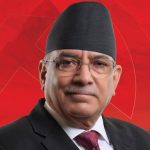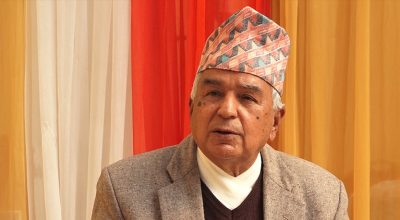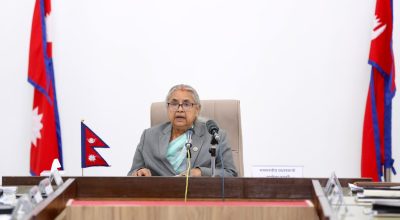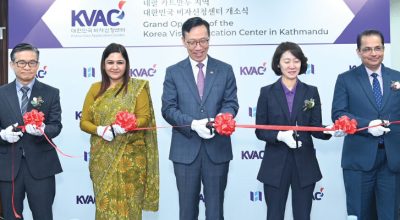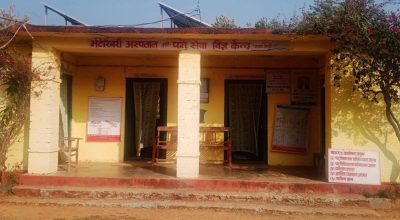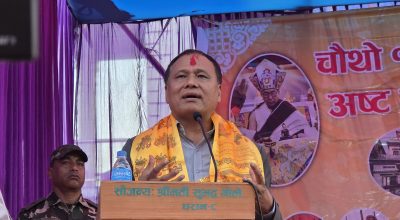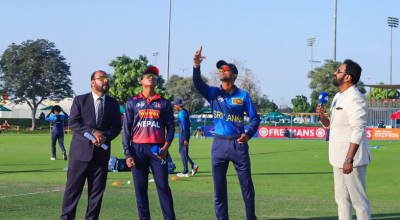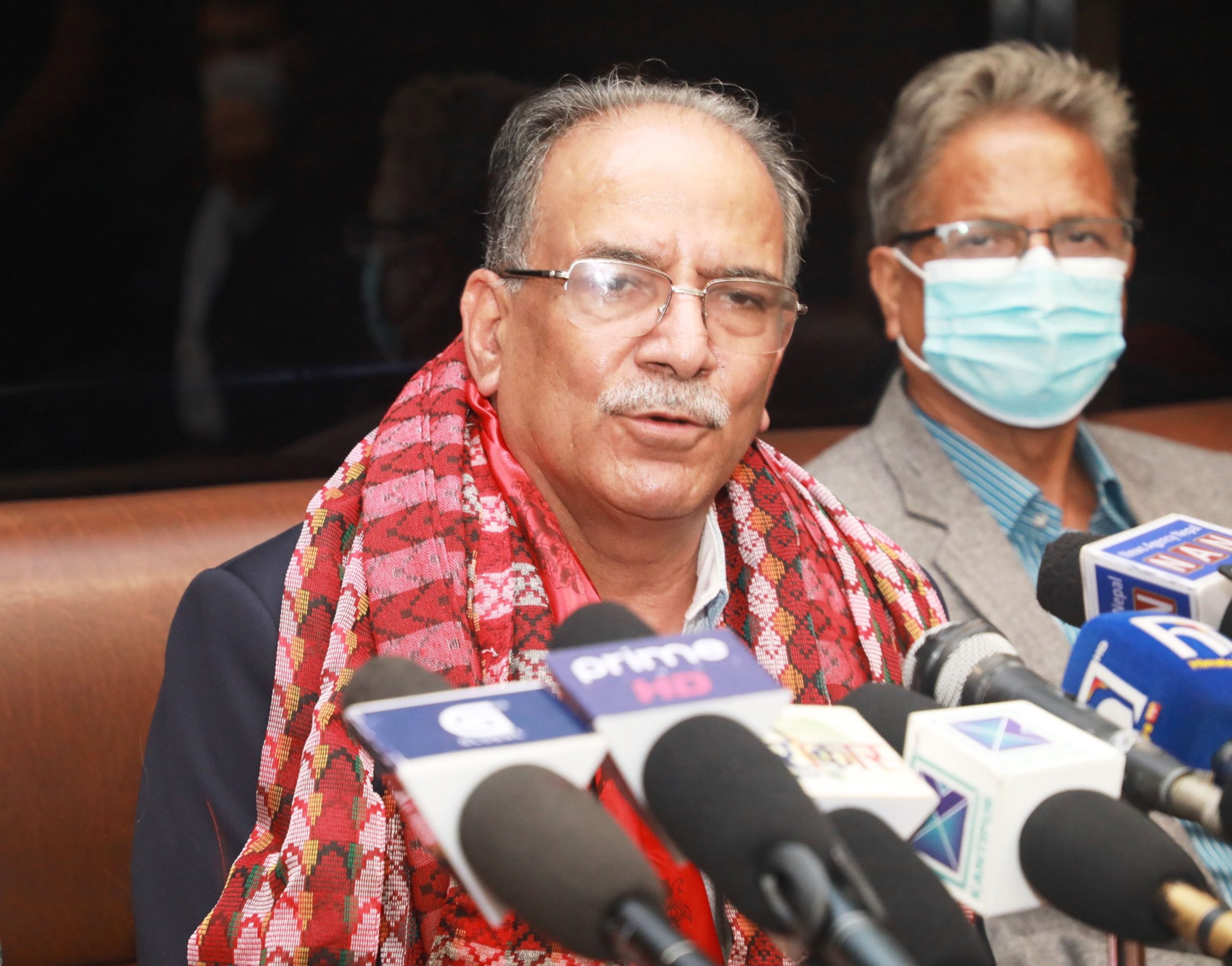
At the very outset, let me express my profound happiness for being part of this important international seminar on such a vital subject “International Relations: Nepal and the World Order”. I, therefore, express my sincere thanks to Neeti Anusandhan Pratishthan, Nepal ( Policy Research Institute, Nepal) for organizing this seminar on such a vital issue concerning Nepal’s international relations and inviting me as a chief guest of the concluding session.
Such programs serve as the important platforms for discussing and exploring the dynamics of international relations in this rapidly changing global world order. Changing dynamics of international relations brings challenges as well as opportunities for us. In this context, our basic focus should be directed towards better comprehending such challenges and opportunities while formulating and implementing policies. The fundamental objective of our foreign policy should be guided towards addressing the present challenges and utilizing the opportunities of the current global system in an effective manner that serves the needs and interests of our country and people.
The seminar is timely and its theme is appropriate, which has enthralled me personally. This seminar is thus expected to have a far-reaching impact and broaden our perspective in looking at newer turns of events in the neighbourhood as well as in the broader international arena and accordingly conduct our foreign policy and international relations. I am optimistic that the best brains, who have gathered here, would come up with their innovative ideas, suggestions and recommendations which would be helpful for all of us in charting out the future course of foreign policy and the conduct of international relations as well as adopt the strategy on how best we can benefit from the developments in the neighborhood and in the world.
Our constitution has clearly set forth the objectives and priorities of our foreign policy which seek to enhance the dignity of the nation by safeguarding sovereignty, territorial integrity, independence, and promoting economic well-being and prosperity of Nepal and contributing to global peace, harmony and security.
The Directive Principles of the Constitution says: The State shall direct its international relations towards enhancing the dignity of the nation in the world community by maintaining international relations on the basis of sovereign equality, while safeguarding the freedom, sovereignty, territorial integrity and independence and national interest of Nepal, while the State Policy on priorities of foreign policy are defined as to: conduct an independent foreign policy based on the Charter of the United Nations, non-alignment, principles of Panchasheel, international law and the norms of world peace, taking into consideration of the overall interest of the nation, while remaining active in safeguarding the sovereignty, territorial integrity, independence and national interest of Nepal; to review treaties concluded in the past, and make treaties, agreements based on equality and mutual interest.
The Constitution also guides the conduct of our foreign policy on the basis of principles of mutual respect, for each other’s territorial integrity and sovereignty; non-interference in each other’s internal affairs; respect for mutual equality; non-aggression and the peaceful settlement of disputes; cooperation for mutual benefit; abiding faith in the Charter of the United Nations; and value of world peace. Based on the constitutional principles, priorities and guidelines, we conduct our international relations, foreign policy and diplomacy.
Nepal is in the vital geographic location, which gives a greater geopolitical prominence. With the dawn of the 21st century, international power and geopolitics have seen a great paradigm shift. Asia is becoming the epicenter of international power. All predictions have it that the 21st century will be the Asian century, in which Asian countries especially China and India will have a bigger role to play due to their physical size, economy and demographic dynamics. China is already the second largest economy and India is the fifth largest. Both China and India have been marching ahead fast and firmly to become key global powers.
The spectacular rise of China and India is a matter of pride for all Asians including Nepal as our next door neighbours are global powers and centre of global attention. This is also an opportunity for Nepal to take benefit from the development of our two neighbours in getting rid of abject poverty, mass unemployment and backwardness. Development is a long-way and time consuming process which requires vision, enduring patience, sustained policy measures and determination. The level of development these two great neighbours of ours have achieved is not an overnight accomplishment. They have achieved this feat through arduous struggle of the people, visionary leadership and sustained growth and sustainable development policies. During their march to modernization and advancement, both Chinese and Indian people have made sacrifices and gone through many ups and downs and difficulties. Their trajectory and experiences on the path to prosperity could be a great lesson for all of us and we can and should benefit a lot from their experiences.
A decade ago, I proposed a trilateral framework for peace, development and cooperation among Nepal, India and China. Nepal is not merely a buffer state but can be a vibrant bridge between India and China. We know their core concerns and we always pay special attention to their concerns and address them accordingly. If Nepal, India and China build trilateral framework for development, it will have a far reaching repercussion in the region and also in the world.
This is the age of globalization and we cannot escape from this. In the present era of globalization, all countries are interconnected. Countries cannot prosper in isolation. This is also the age of cooperation and collaboration. We can prosper only when we cooperate and collaborate among one another. Greater cooperation among nations is a fundamental basis for peace, development and prosperity.
Nepal has no enemy but all friends. We have been receiving goodwill and cooperation from all countries in the world. I am optimistic that we continue to get such cooperation in future. It is only through mutual cooperation, we can solve the multiple problems and contradictions and face global challenges. The COVID-19 Pandemic also exposed how vulnerable we are and gave us strong message for greater necessity of mutual cooperation and collaboration.
The world order has also witnessed a great transformation. The world is slowly moving from uni-polar to multipolar order. Nepal has always been an advocate of multi-polar order. As stated in our constitution, we have strong faith in the UN Charter and non-alignment in the conduct of international relations.
We live in the era of multiple contradictions. Countries in the global south are suffering from poverty, inequality and backwardness. The countries in the global south are yet to reap benefits from globalization. Now is the time countries in the south including Nepal should explore all possibilities and reap benefits from the newly developed global scenario and developments for the common progress and prosperity. Peace and stability are the basic foundation for development of prosperity. Nepal is a peaceful country it advocates peace at home, peace everywhere. It is only through peace and cooperation, we can march ahead on the path of prosperity and modernization.
Thank you !
(Speech to be delivered by the Former Prime Minister Pushpa Kamal Dahal “Prachanda” at the Concluding Session of the International Seminar on International Relations: Nepal and the World Order organized by Policy Research Institute, Nepal (26-28 August 2022)




